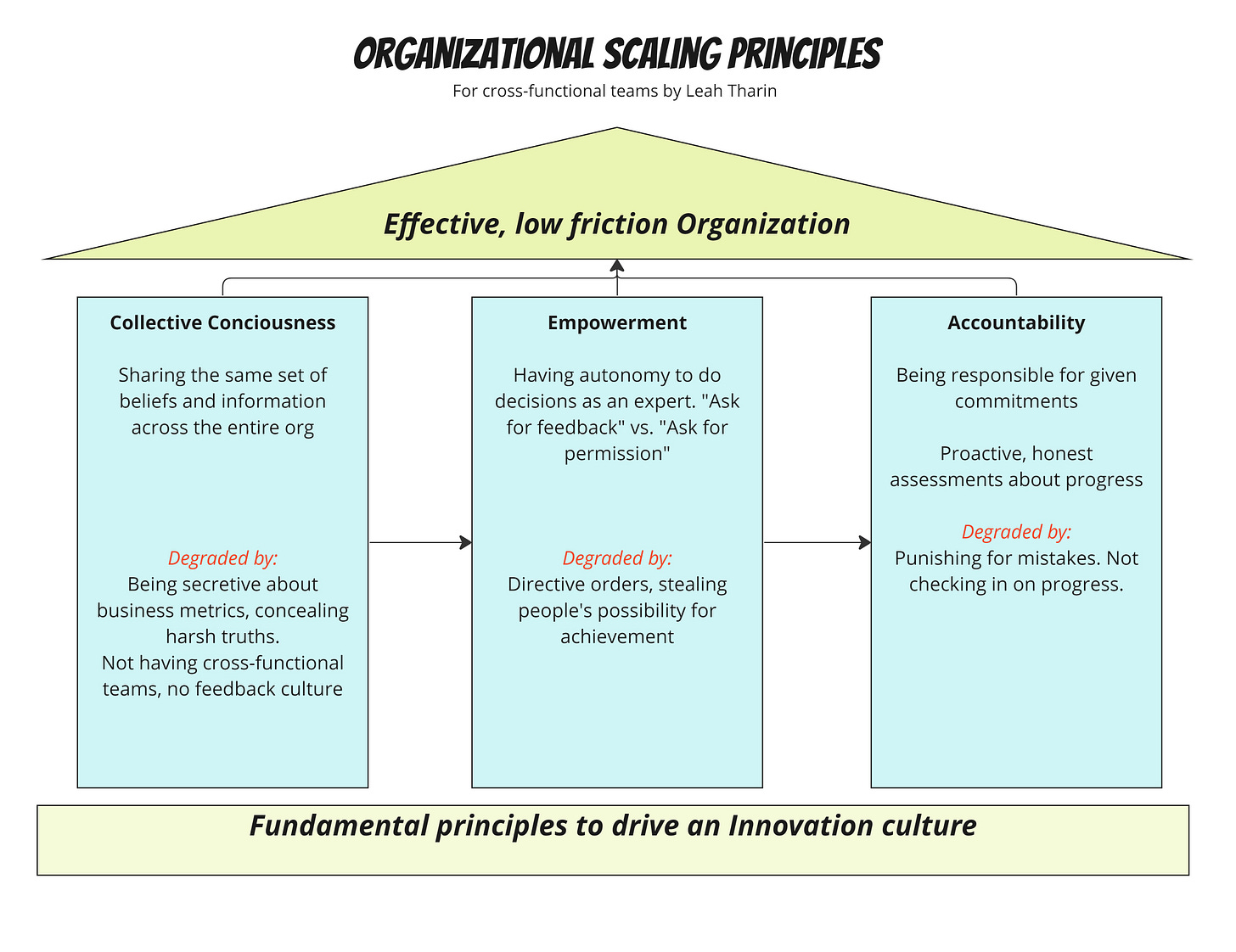Your startup is growing and you need to think about how to build the organization so people in it aren't going completely mad.
The way we structure cross-functional organizations is around 3 base principles. They seem to be the best fit around outcome-driven, collaborative environments:
- Shared consciousness:
is the set of shared beliefs within a specific…
Keep reading with a 7-day free trial
Subscribe to Leah’s ProducTea to keep reading this post and get 7 days of free access to the full post archives.




